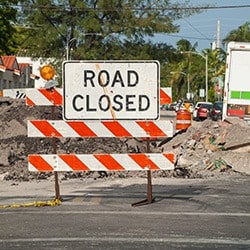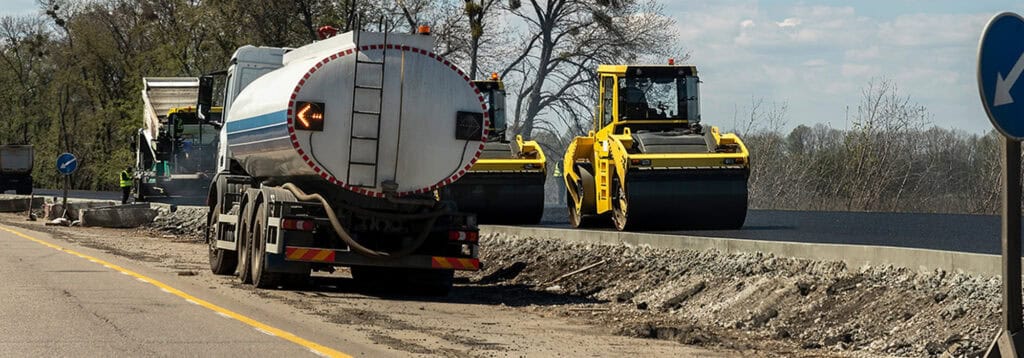
What to Know About Utility Easements
Understanding utility easements is crucial regarding property ownership in North Carolina. Utility easements affect property owners nationwide and allow certain utility companies to access private property indefinitely to maintain or install necessary infrastructure like power lines, water pipes, or gas lines. However, rules and protections are in place to balance the rights of property owners with the needs of the public and private utility companies. In this blog, we’ll cover everything you need to know about utility easements in North Carolina, including who can use them, what restrictions may apply, and how much they might be worth.
What is an Easement?
An easement is a legal right that allows another party or government entity, such as the North Carolina Department of Transportation (NCDOT), to use someone else’s land for a specific purpose. In North Carolina, utility easements are often granted to install, maintain, and repair utilities like water, electricity, sewage, or gas. Property deeds typically describe these easements and may exist as permanent or temporary rights.
North Carolina Easement Laws
In North Carolina, utility easements are typically governed by a Permanent Utility Easement (PUE) deed, granting utility companies, municipalities, or the North Carolina Department of Transportation (NCDOT) the right to install, maintain, and inspect utility lines on private property. These easements are usually permanent (“in perpetuity”) and allow access for repairs, alterations, and inspections of utility infrastructure, such as poles, pipes, or wires.
Property owners may be restricted in using the land within the easement area. The language in PUE deeds can be complex and technical, making it difficult for property owners to fully understand the scope of the rights being granted. Having an eminent domain attorney review the document before signing is crucial, as property owners may unintentionally waive certain rights or lose potential compensation by agreeing to these terms.

Who Can Use an Easement in NC?
An easement holder, usually the utility company, can use it for its intended purpose. However, they cannot transfer that right to another entity unless the easement agreement specifies otherwise. For instance, a utility company that installs gas pipelines may not automatically allow another company to install cable lines in the same easement without explicit permission.
As the landowner, you still retain rights to the land in question. Still, you must allow the utility company reasonable access to perform maintenance, repairs, or other necessary actions related to the utility.
Can a Utility Company Dig in My Yard Without My Permission?
If there is an easment on your property, the specified utility companies have the legal right to enter your property to perform work related to the easement, including digging, if necessary. However, there are some limitations. In most cases, the utility company must notify you before doing significant work, like digging or installing infrastructure. The utility company must also limit its use of your property to the necessary scope of the easement. For example, they can’t dig up your entire yard just because they have an easement; they must stick to the defined area. If you believe the utility company is overstepping its bounds or damaging your property, you have the right to discuss the situation and seek legal advice.
Utility Easement Restrictions
Utility companies have the right to use an easement, but there are typically restrictions to protect the landowner’s rights. Property owners may not build permanent structures, plant trees, or engage in activities that interfere with the easement’s use, though temporary uses like gardening or fencing may be allowed.
The utility company is responsible for maintaining the infrastructure within the easement, though the landowner may need to allow inspections and repairs. Additionally, landowners cannot obstruct or block access to the easement with structures, fences, or other obstacles that could hinder the utility company’s operations.
How the Value of an Easement is Calculated
The value of a utility easement on your property depends on several factors, including the size and location of the easement, the type of property (residential, commercial, or agricultural), and the market value of the land. Easements that cause significant land disruption are typically valued higher, while those with minimal impact may have lower compensation. Generally, more valuable land is more likely to receive compensation.
In some cases, utility companies may offer a one-time payment for the easement or annual compensation for its continued use. However, the offer may not always reflect the easement’s full impact on your property’s value. To determine a fair compensation amount, it’s essential to consult with an eminent domain attorney, as there is no standard formula for easement value.
How to Determine Whether Your Property Has an Easement on It
If you’re unsure if your property has a utility easement on it, you can search the property’s title to determine if there are any on your land. Easements usually transfer from one owner to the next so even though you may not have necessarily agreed to an easement, the prior owner may have.
Eminent Domain Attorneys Who Put You First
Understanding utility easements is integral to being a property owner in North Carolina. Knowing your rights and obligations is essential whether you’re dealing with an existing easement or facing a new one.
In North Carolina, you generally cannot block an easement; however, you do have the option to negotiate its terms and can do so with the help of an eminent domain attorney at Henson Fuerst. Our eminent domain lawyers are here to help protect your property and ensure that any utility easement is fair and in line with North Carolina law. Let us put you first when it comes to your land and your rights.
Contact us today by submitting a form online or calling our office at 919-781-1107 for a complimentary consultation.
